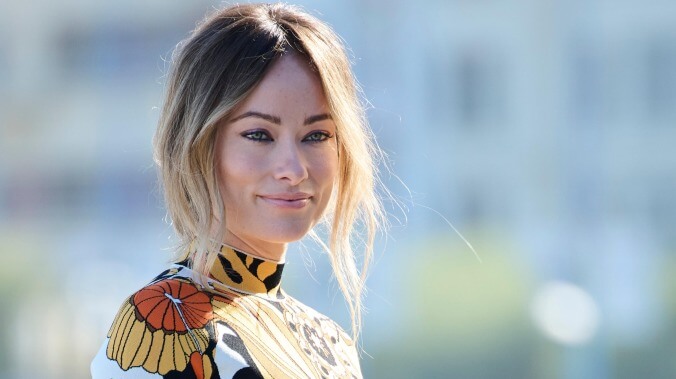Olivia Wilde tries to retcon the narrative, throws Donald Trump’s name into the Don’t Worry Darling mix
Olivia Wilde name-drops Florence Pugh and Donald Trump while trying to rewrite the Don't Worry Darling narrative

This story contains minor spoilers for Don’t Worry Darling.
Lord forgive us for continuing the already overwrought Don’t Worry Darling press cycle, but it’s been a while since the content of a film was so at odds with the media circus around it. This isn’t to say that the gossip and drama have negatively colored the reception of the movie, which has been a popular reaction to the reactions. Rather, Olivia Wilde’s idea of the film doesn’t seem to line up with her final product, and the media circus has only muddied the waters further.
Let’s get this out of the way first: in a new Elle interview, Wilde adds to the list of DWD inspirations (which includes The Feminine Mystique and Jordan Peterson) the movement to overthrow Roe v. Wade as well as former president Donald Trump. “We had a bunch of Trump quotes up on our board when we were writing the script, and there was this gross tendency of Trump’s to be very nostalgic about a better time,” the director says. “What these men are referring to is a time that was horrific for anyone who wasn’t a straight white cis man.”
Fair enough, yet Wilde is also careful to clarify that straight white cis men are not the sole target of Don’t Worry Darling’s cultural commentary. “I’m very curious about our collective complicity in [upholding] the patriarchy. I found myself seeing a lot of content that was struggling to address feminist issues and instead becoming either really simplified or overly didactic,” she explains. “I had no interest in making a feminist parable that was judgy or that defined men as bad and women as good. I was much more interested in that tense space where we recognize our own participation in the system that objectifies us.”
Those who have seen Don’t Worry Darling may be confused to hear this as men—at least these men—are definitely all painted with the same “bad” brush; almost all of them have non-consensually brainwashed their female partners. There are a few female characters who do actively participate in this system, though the protagonist, Alice (Florence Pugh) is not one of them. Shelley (Gemma Chan) and Bunny (Wilde) are both eventually revealed to be active participants, though so far along in the film that it’s too late to interrogate the ways they’ve also subjugated their fellow women.
“This film is trying to ask big questions, but [it’s] ‘Let’s just focus on this sideshow over here,’” Wilde laments to Elle, though by her own remarks, it doesn’t seem like the questions she’s asking and the questions her film asked are the same. But speaking of the sideshow, she goes on to denounce the media for the way it “pits women against one another,” presumably referencing her alleged feud with Pugh, her star.
Wilde has been consistently careful to heap praise on Pugh throughout the film’s PR blitz, but in the Elle piece she attempts to rewrite history by referencing the actor’s (rare) comments on the film. “Florence very wisely pointed out that a lot of attention has been given to the sex scenes. And I think she’s so right,” Wilde asserts. “I completely agree with her that it’s overshadowing everything else that the movie’s about, which is so interestingly ironic because one of the uses of sex in Victory is as a tool of distraction.”
Hilariously, Pugh’s remark about DWD being “reduced” to its sex scenes only came after Wilde had proudly touted the rarity of a film depicting “female hunger, specifically this type of female pleasure.” For Elle, she downgrades this slightly to an interest in “acknowledging female pleasure that doesn’t come from penetration.” In any case, as many critics of the film have pointed out, the nature of the film’s simulation cult means that all of the intimate scenes we witness in Victory are dubiously consensual, and therefore an odd way to make a point about female pleasure.
Olivia Wilde has already won the day, as despite Don’t Worry Darling’s mixed-to-negative reviews, the film still made a tidy sum at the box office. Undoubtedly that success was aided by the accompanying drama, although she tells Elle it wasn’t her intention to “throw myself into the flames for the movie.” Instead, she continues to try to redirect attention toward the film itself while simultaneously trying to rewrite the narrative around it. You can decide for yourself whether that attempt is successful or not.